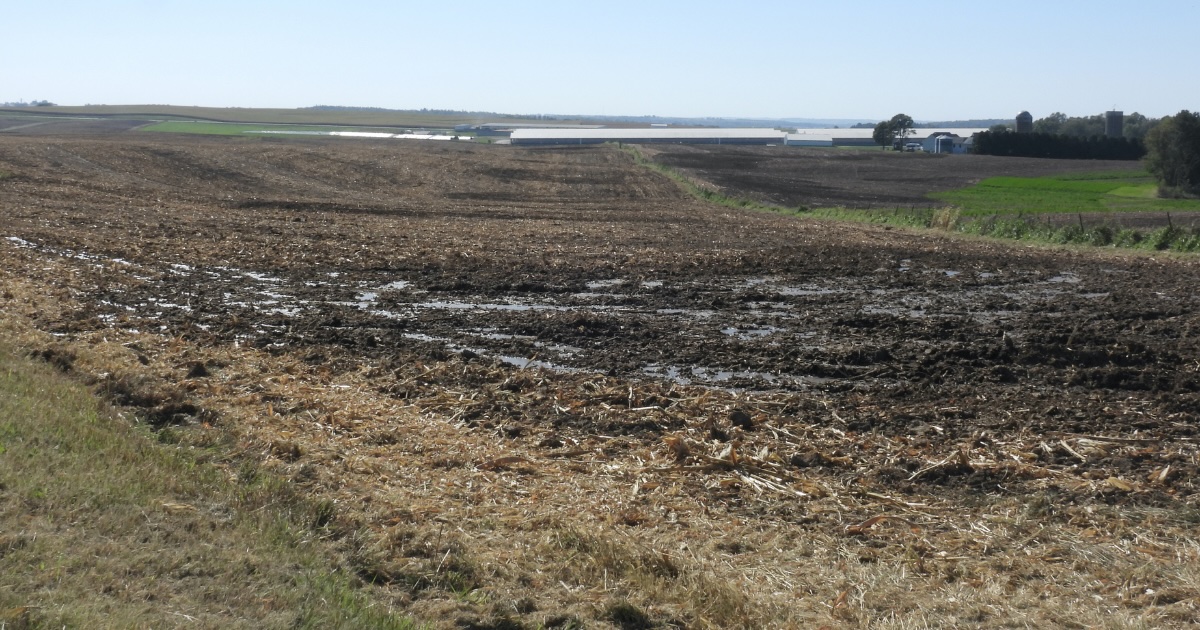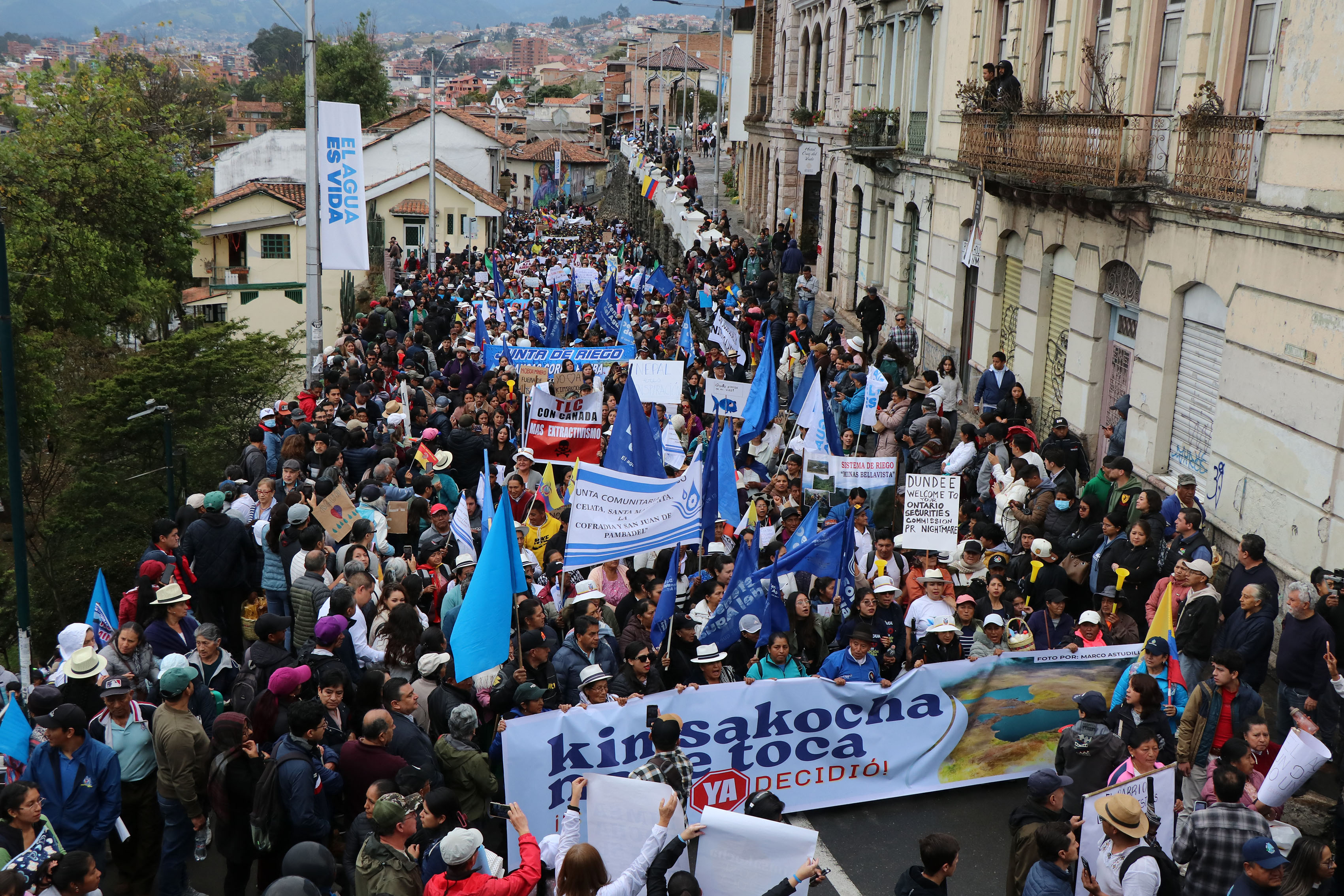Climate change and environmental destruction are becoming increasingly central to the human rights movement.
Droughts, toxic pollution, water shortages, desertification, severe storms and related events touched the lives of millions of people around the world last year, according to Amnesty International’s annual “State of the World’s Human Rights” report covering 2023.
In conflict-torn Libya, Storm Daniel, likely intensified by climate change, crumbled two dams with the onslaught of water displacing over 40,000 people and killing thousands more. In Azerbaijan, security forces staged a brutal crackdown on peaceful demonstrators protesting installation of a mine tailings dam near their community. And Canadian wildfires blazed across an area roughly the size of Minnesota, damaging homes, forcing 150,000 people to evacuate and billowing smoke that affected air quality hundreds of miles away in cities from New York to Pittsburgh.
We’re hiring!
Please take a look at the new openings in our newsroom.
See jobs
Those are just some of the dozens of impacts recounted in Amnesty International’s report, which historically has focused on acts by despotic regimes, armed conflict and poverty.
But the report released last month scrutinized for the first time countries’ records on upholding the right to a healthy environment, which the U.N. General Assembly unanimously recognized in July 2022. That recognition is part of a larger trend toward the understanding that environmental issues and human rights are entwined—human health, access to food and water, the ability to make a living and have a family all depend on a healthy environment.
Marta Schaaf, Amnesty International’s director of climate, economic and social justice, and corporate accountability program, said the report’s findings show that significant environmental and climate impacts are affecting people in every country and disproportionately harming marginalized groups.
That includes Rohingya communities in Myanmar, which have for over a decade been displaced by conflict and confined to ramshackle camps in the Rakhine state. When category five Cyclone Mocha hit the region in May 2023, an estimated 3.4 million people were impacted. Children there were particularly vulnerable—those who survived lost family members, and had limited access to healthcare, education, food, water and sanitation. Today, 90 percent of the nation’s children are at risk of multiple environmental and climate hazards, from flooding to cyclones, heatwaves, air pollution and lead exposure.
The Rohingya are not alone in facing multiple, overlapping threats. Flooding, droughts, intense heat and other climate-amplified events affected poor communities in Pakistan, Malawi, Rwanda, the Democratic Republic of the Congo, Mozambique, France and the United States, among other places last year.
Yet not all governments have the capacity and resources to respond to these shocks in a way that fulfills the basic needs of citizens.
“If you’re in a Caribbean country and have climate event after climate event, that affects the government’s bank account and makes it difficult to ensure rights protection above and beyond the rights harmed during weather events,” Schaaf said.
The report called on developed countries to “urgently scale up climate finance” to lower-income nations for adaptation to climate change and to provide additional funding for damages caused by climate-related events. The idea behind such calls is that wealthier countries have, in general, historically contributed the most greenhouse gas emissions and become wealthy doing so while poorer countries have emitted little while enduring some of the worst impacts of global heating.
Before Covid-19, the United Nations Conference on Trade and Development said that for the world’s least developed countries to meet global sustainable development goals, roughly $1 trillion annually is needed. That number is likely higher post-pandemic.
Since 2009, developed countries at global climate talks have agreed to deploy $100 billion annually to developing countries to both cut emissions and adapt to climate impacts. But funds actually mobilized have never reached that number—in 2021 the amount transferred was $89 billion. For reference, the United States spent over $2 trillion on the war in Afghanistan, and one estimate put Russia’s costs for its war in Ukraine at $211 billion.
The Amnesty International report noted that throughout 2023 some of the highest historical, current and per capita emitters, including the United States, China and Canada, have expanded fossil fuel projects that both contribute to climate change and have an impact on local communities. In 2022, China’s coal power plant construction was six times higher than the rest of the world combined, the report said.
Australia, another high emitting country, also expanded coal mining projects last year, while Japan was listed as the only industrialized country that has not committed to phasing out coal-powered electricity. The United States, the world’s biggest historical emitter, produced more crude oil than any other country in the world in 2023, a six-year trend.

Schaaf said when considering climate finance, which she frames as a human rights issue, it’s important to keep in mind wealth disparities both among countries and within them.
“We want to emphasize that when talking about historical emitters, the onus for behavior change shouldn’t fall on everyday people,” Schaaf said. “It’s not about middle and working class people paying more in taxes to fund climate finance. We need to keep our eyes on corporations and individuals who caused the climate crisis and who can afford to contribute—polluters should pay.”
The report also heavily emphasizes the growing threats to environmental defenders, who are people peacefully acting to protect nature and their homes from environmental degradation.
Honduras is widely considered to be one of the most dangerous countries for people working to protect their land, water and air from pollution. From 2012 to 2022, at least 131 killings of environmental defenders took place there. Last July, in northern Honduras’s Guapinol community, three people from the same family were shot dead after campaigning against an iron mine that had contaminated the Guapinol and San Pedro rivers that hundreds of people in the community depend upon for clean water and subsistence farming and fishing.
The report also highlighted incidents in the Philippines where two female environmental defenders were forcibly disappeared and two other environmental protection workers were designated as terrorists and charged with perjury in 2023.
Amnesty International named Bolivia, Brazil, Canada, Colombia, Ecuador, El Salvador and Mexico as being increasingly dangerous locations for environmental defenders.
Schaaf said the number of documented attacks on environmental defenders around the world is likely an undercount. China, Russia and other repressive states heavily restrict watchdog groups’ activity. Last year the Russian government branded two large environmental nonprofits as “undesirable” and banned them from operating in the country.
The health and livelihoods of people around the world were affected by large-scale extractive projects like oil and gas drilling and mining, the report said.
One example cited took place in Mongolia’s coal- and mineral-rich Gobi region, where nomadic herder communities have for years endured hazardous air, water and soil pollution while losing territory to mining projects. Some of the mining companies operating in the Gobi region hail from wealthy Western countries, including Canada.
“States repeatedly ignored the impact of extractive industries on the environment and on Indigenous Peoples and other affected communities,” the report said.
This story is funded by readers like you.
Our nonprofit newsroom provides award-winning climate coverage free of charge and advertising. We rely on donations from readers like you to keep going. Please donate now to support our work.
Donate Now
In a section focused on the United States, the report noted that the country was the largest exporter of liquified natural gas from January to June of 2023 and expanded new oil and gas drilling at a breakneck pace, yet its contributions to climate finance “remained critically insufficient compared to its fair share.”
The United States also remained a lead producer of plastics, made from fossil fuels, with factories often situated in poor and minority communities. Americans living near petrochemical factories are 67 percent more likely to be people of color, and exposure to petrochemicals is linked to adverse health impacts, particularly among children, including cancer and respiratory problems, the report said.
Schaaf said looking ahead to 2024 and beyond, her team is closely watching issues related to climate finance and its link to taxation; misinformation about climate change; and how purported solutions to climate change and biodiversity loss can cause human rights abuses, such as fortress conservation—in which local inhabitants are forcibly removed from their land, assaulted or killed in relation to biodiversity protection—and some carbon offset schemes.
“This is an all hands on deck moment for human rights and the environment,” she said.

















